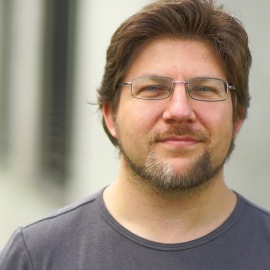In a Hacker News discussion, I just stumbled upon two quotes which – in my view – beautifully capture the essence of the symbiosis of academic teaching and research:
“If you pay a man a salary for doing research, he and you will want to have something to point to at the end of the year to show that the money has not been wasted. In promising work of the highest class, however, results do not come in this regular fashion, in fact years may pass without any tangible result being obtained, and the position of the paid worker would be very embarrassing and he would naturally take to work on a lower, or at any rate a different plane where he could be sure of getting year by year tangible results which would justify his salary. The position is this: You want one kind of research, but, if you pay a man to do it, it will drive him to research of a different kind. The only thing to do is to pay him for doing something else and give him enough leisure to do research for the love of it. “
— J. J. Thompson
“I don’t believe I can really do without teaching. The reason is, I have to have something so that when I don’t have any ideas and I’m not getting anywhere I can say to myself, “At least I’m living; at least I’m doing something; I am making somecontribution” — it’s just psychological.
When I was at Princeton in the 1940s I could see what happened to those great minds at the Institute for Advanced Study, who had been specially selected for their tremendous brains and were now given this opportunity to sit in this lovely house by the woods there, with no classes to teach, with no obligations whatsoever. These poor bastards could now sit and think clearly all by themselves, OK? So they don’t get any ideas for a while: They have every opportunity to do something, and they are not getting any ideas. I believe that in a situation like this a kind of guilt or depression worms inside of you, and you begin to worry about not getting any ideas. And nothing happens. Still no ideas come.
Nothing happens because there’s not enough real activity and challenge: You’re not in contact with the experimental guys. You don’t have to think how to answer questions from the students. Nothing!
In any thinking process there are moments when everything is going good and you’ve got wonderful ideas. Teaching is an interruption, and so it’s the greatest pain in the neck in the world. And then there are the longer period of time when not much is coming to you. You’re not getting any ideas, and if you’re doing nothing at all, it drives you nuts! You can’t even say “I’m teaching my class.”
If you’re teaching a class, you can think about the elementary things that you know very well. These things are kind of fun and delightful. It doesn’t do any harm to think them over again. Is there a better way to present them? The elementary things are easy to think about; if you can’t think of a new thought, no harm done; what you thought about it before is good enough for the class. If you do think of something new, you’re rather pleased that you have a new way of looking at it.
The questions of the students are often the source of new research. They often ask profound questions that I’ve thought about at times and then given up on, so to speak, for a while. It wouldn’t do me any harm to think about them again and see if I can go any further now. The students may not be able to see the thing I want to answer, or the subtleties I want to think about, but they remind me of a problem by asking questions in the neighborhood of that problem. It’s not so easy to remindyourself of these things.
So I find that teaching and the students keep life going, and I would never accept any position in which somebody has invented a happy situation for me where I don’t have to teach. Never.”

